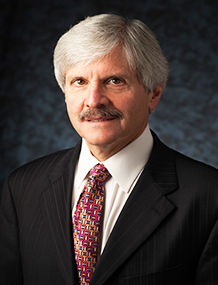Posted by Dr. Richard Feldman on Jan 1st 2018
Flashpoint: No reason to fear CBD oil
Flashpoint: No reason to fear CBD oil
By Richard Feldman, M.D. | Indianapolis physician - Dec 30, 2017

Indiana Attorney General Curtis Hill issued a recent opinion that current state law makes Cannabidiol oil, commonly known as CBD oil, illegal to sell and possess. The only exception is for possession by those with treatment-resistant seizure disorders listed on a state CBD registry legislatively created last year. Under present law, then, it’s effectively impossible for people, even if on the registry, to legally buy this substance.
There has been confusion regarding current state laws. Until a brief moratorium, Indiana State Excise Police had been confiscating CBD from stores, while Indiana State Police considered it legal as long as the CBD oil contains less than 0.3 percent THC (delta-9 tetrahydrocannabinol) which the new state law requires. Gov. Eric Holcomb has now ordered resumption of the confiscation.
Marijuana (Cannabis) contains over a 100 cannabinoids. CBD accounts for a large portion of the cannabinoids and has no addictive, euphoric, or intoxicating effects. So, it does not produce a “high” like the well-known cannabinoid THC. Cannabinoids produce their potential medicinal effects (and THC’s additional euphoric effect) by attaching to cannabinoid receptors and other types of receptors throughout the body including the brain. The body also produces its own cannabinoids naturally.
The evidence for medical benefits from CBD use is in its infancy. The best known and documented value is in epilepsy. Multiple studies have demonstrated that CBD added to current anti-seizure medications, including those with treatment-resistant epilepsy, reduced seizure frequency between 36 to 39 percent. There are anecdotal reports of astonishing life-changing improvements in specific patients given marijuana with severe intractable seizures and totally unresponsive to conventional medications.
There are other potential medicinal uses of CBD. Studies in mainstream American and European medical and scientific journals, some from major medical centers, suggest CBD efficacy for conditions including acne, depression, a variety of anxiety disorders, and even schizophrenia. Other studies report possible usefulness in treating chronic pain and inflammation, opioid and tobacco addictions, heart disease, diabetes and neurodegenerative disorders like Alzheimer’s disease, multiple sclerosis, Parkinson’s disease, and stroke. It may have anti-cancer qualities including the suppression of cancer growth and spread. It must be emphasized, however, that much more research is necessary to truly say CBD has meaningful value in treating these conditions.
Both CBD and THC have documented health effects, and these effects may be enhanced for some conditions when both are utilized together. An approved drug, Sativex, approved in 29 countries including Canada, combines equal amounts of CBD and THC. Marijuana growers have bred some marijuana to contain higher amounts of CBD and less THC to achieve desired health effects.
Side effects of CBD oil are minimal and well tolerated. It is known to cause diarrhea, fatigue, or sleepiness in some individuals.
The illegality of CBD oil is ridiculous and irrational, solely stemming from the fact it is derived from cannabis. Sixteen non-medical marijuana states have limited legalization of CBD, mostly for epilepsy. The federal government considers CBD illegal through its Drug Enforcement Agency’s schedule 1 controlled substance status for cannabis. Schedule 1 substances are considered having high abuse potential with no evidence of medical benefits. This status impedes needed medical research. Nevertheless, CBD has no addictive or euphoric intoxicating effects, no significant side effects, and possible health benefits.
For now, CBD should be treated like a legal herbal supplement. Many herbal supplements on the market have minimal, questionable, or no proven health effects and are regulated by the FDA only if misrepresentations or other safety problems are identified.
What’s all this fear and loathing about? If people think CBD helps them, let them use it legally.
Dr. Richard Feldman is an Indianapolis physician and former Indiana state health commissioner.

